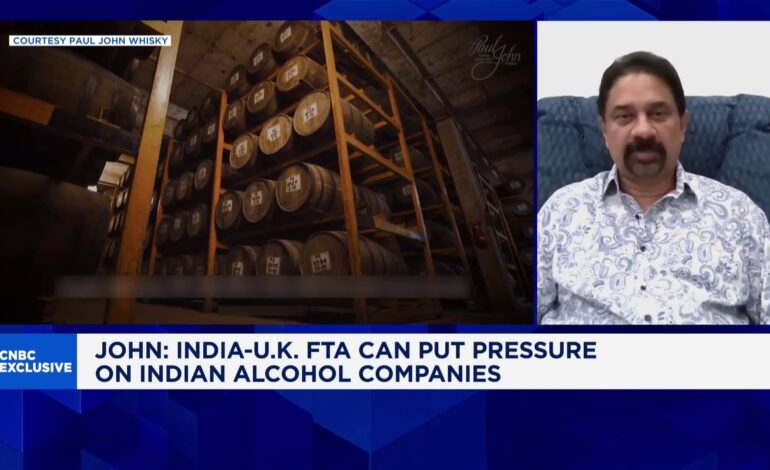Indian Spirits Companies Brace for Impact from India-UK Trade Deal

The impending trade deal between India and the United Kingdom is poised to significantly influence the Indian spirits industry. Set to be finalized in March 2024, this agreement may reshape market dynamics, affecting domestic producers as they navigate potential challenges and opportunities stemming from increased competition and changing tariffs.
As the UK aims to strengthen its trade relationships post-Brexit, the proposed deal includes provisions that could lower import tariffs on alcohol. This adjustment could particularly benefit UK-based companies such as Diageo and Pernod Ricard, which already have a strong foothold in the Indian market through brands like United Spirits. With these companies likely to gain a pricing advantage, local producers may face heightened competition.
Market Reactions and Strategic Adaptations
In response to the anticipated changes, several Indian spirits companies are reassessing their strategies. The Indian Alcoholic Beverage Association has expressed concerns that reduced tariffs on imported spirits could erode the market share of domestic brands. Such a shift may lead to a price war, compelling local companies to lower their prices or invest heavily in marketing to retain consumer loyalty.
According to industry analysts, the trade deal could result in a surge of UK imports, which may diminish the appeal of locally produced spirits. This situation prompts Indian manufacturers to enhance their product offerings and explore new markets. They might focus on innovation, developing premium products that resonate with the evolving tastes of consumers.
The Path Forward for Indian Producers
To counter the potential impact of increased foreign competition, Indian spirits companies are likely to invest in branding and quality improvements. As more consumers seek unique and high-quality experiences, local brands have an opportunity to capitalize on this trend. Engaging storytelling around heritage and craftsmanship can differentiate their products in a crowded marketplace.
Experts suggest that collaboration between Indian companies and UK counterparts could also emerge as a viable strategy. By forming partnerships, local producers may gain access to distribution networks and marketing expertise, thereby enhancing their competitiveness.
The potential outcomes of the India-UK trade deal extend beyond simply import tariffs. The domestic spirits industry must prepare for a landscape that may be markedly different in the coming years. With careful planning and innovative strategies, Indian companies can leverage the challenges posed by this deal to their advantage, ensuring sustainability and growth in a rapidly changing market.






